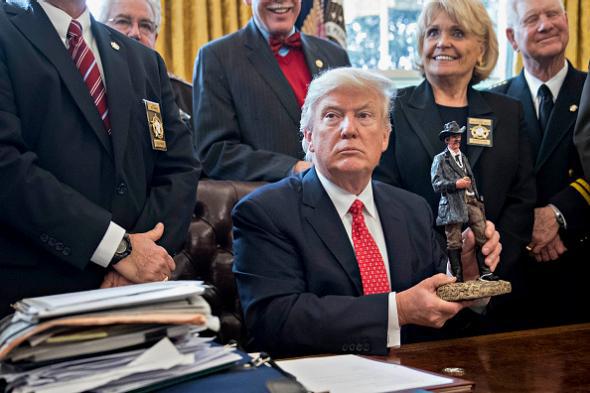A Reuters/Ipsos poll released Jan. 31—the first national survey taken after the implementation of President Trump’s executive order banning travelers from seven majority-Muslim countries—found that Americans supported the move by a 48–41 margin. A subsequent Gallup survey, however, found that 55 percent of Americans disapproved of the order. Now we have a new Quinnpiac poll, which, in addition to finding that Americans disapprove of Trump’s order by a margin of 51 percent to 46 percent, also indicates that abstract support for the idea of suspending immigration from “terror-prone” regions has swung 12 points since the order that ostensibly does so went into effect. From Quinnipiac’s press release:
American voters oppose 50–44 percent “suspending immigration from ‘terror prone’ regions, even if it means turning away refugees. …” This reverses the findings of a Quinnipiac University poll conducted January 5–9, before President Trump was inaugurated, showing voters supported this measure 48–42 percent.
The Upshot’s Nate Cohn notes that responses to the question in … question have become subject to partisan polarization since the enactment of a real-life ban, with Democratic support for the suspension of immigration dropping from 24 percent to 10 percent and Republican support rising from 72 percent to 84 percent. (Independent support has dropped from 49 to 40 percent.)
It is probably good news overall for the republic that public opinion seems to be swinging against systematic religious discrimination. But is it also maybe a touch disappointing that so many Americans seemingly had to see photos of little kids and grandparents being detained at airports (and/or begin associating a particular political party with said photos) before they realized that treating entire countries’ worth of human beings like criminals was a constitutional party foul?
